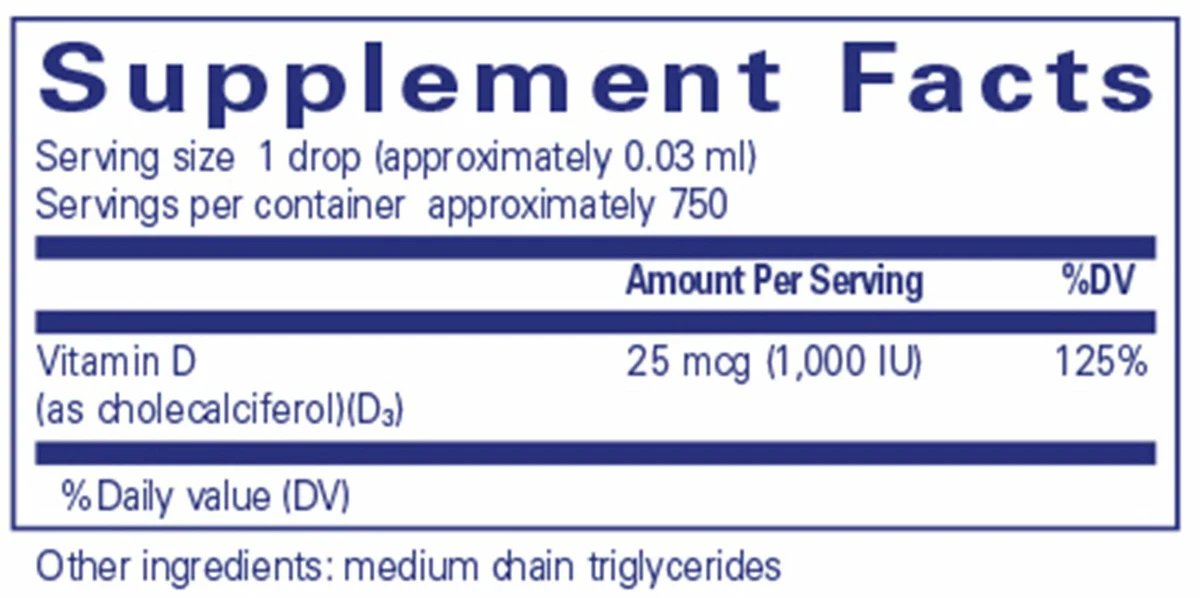Vitamin D3 enhances calcium absorption and retention, a key nutritional role in supporting healthy bones, and may play a potential role in cardiovascular, colon and cellular health. Vitamin D levels have been shown to decline with age, due primarily to a reduction in either absorption or metabolism by the liver. Decreased exposure to sunlight, a vegetarian diet, or a low intake of vitamin D fortified foods also play a role in inadequate vitamin D levels.
Bone Health: Vitamin D promotes intestinal calcium and phosphorous absorption and reduces urinary calcium loss, essential mechanisms for maintaining proper calcium levels in the body and for healthy bone composition. Clinical studies involving vitamin D supplementation suggest the importance of vitamin D in addition to calcium for bone health. Vitamin D supplementation alone may also support bone health.
Cardiovascular Support: Vitamin D may also provide cardiovascular support for some individuals, which may be attributed to its effect on calcium metabolism or possibly by helping to maintain healthy plasma renin function.
Cellular Health: Studies suggest vitamin D supports colon health by promoting healthy cellular function. Vitamin D is also believed to provide general cellular support potential, including breast and prostate cells, in part by helping to maintain healthy angiogenesis balance, supporting immune cell activity and maintaining healthy cell metabolism. Preliminary evidence suggests that vitamin D may also play a role in maintaining healthy glucose metabolism, since vitamin D receptors are present on the islet cells of the pancreas.
These statements have not been evaluated by the Food and Drug Administration (FDA). These products are not meant to diagnose‚ treat or cure any disease or medical condition. Please consult your doctor before starting any exercise or nutritional supplement program or before using these or any product during pregnancy or if you have a serious medical condition.






Reviews
There are no reviews yet.